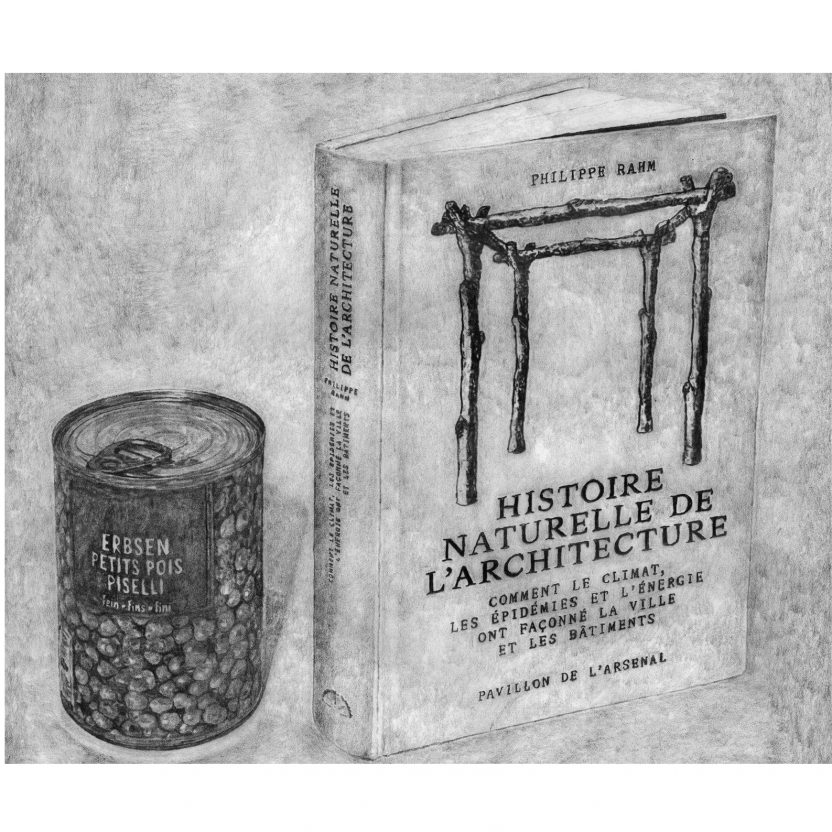Option JMA-GE (MAIA)
Natural History of Architecture: An Environmental Approach to the History of Urban, Landscape, and Architecture Design
 Natural History of Architecture by Philippe Rahm, book, 2020 (credit: drawing by Didier Rittener)
Natural History of Architecture by Philippe Rahm, book, 2020 (credit: drawing by Didier Rittener)CONTENT
The last book written about the history of architecture was strongly influenced by postmodern theories, at a time when political, social, economic, and cultural reasons were predominantly used to explain the causes and consequences of the emergence of a particular form or style. Induced by the massive and easy access to energy and by the progress of medicine, this cultural history largely ignored the physical, geographical, climatic, or bacteriological reasons that actually helped shape, in a decisive way and over centuries, the architectural form, i.e., that of buildings, from cities to interior decoration. Our Environmental and Ecological History of Architecture courses will highlight the natural, physical, biological, and climatic causes that have influenced the development of architectural history and its figures, from prehistory until today, in order to understand how to face the major environmental challenges of our century and to design a better response to climate emergency.
TEACHING AIMS
- Study the historical causes at the origin of architectural forms, urban planning, and interior design.
- Learn how to measure and evaluate your own aesthetic, material, and formal choices with regard to current energy, ecological, and climatic issues.
TEACHING FORMS
The following topics will be addressed in a series of lectures:
- How our homeothermic nature gave rise to architecture (Prehistory)
- How beer brought about cities (Neolithic)
- How beans engendered Gothic architecture (Middle Ages)
- How the eruption of a volcano led to the modern city (19th century I)
- How the dried meat of Graubünden gave rise to modern architecture (Modernity)
- How antibiotics initiated a return to the city (Post-Modernity)
- How central heating killed decorative art (Post-Industrial)
- How global warming is revolutionising everything today (Post-Carbon)

